#NissanLeaf
Nissan Has a Turnaround Plan That Involves Cheaper EVs and Other Electrified Models
The last decade hasn’t been the kindest to Nissan. Its former CEO had to flee Japan and is currently hiding in Lebanon, and several high-value employees left shortly after. Now, the company has reportedly backed out of a tentative deal to invest in Fisker and is eying the possibility that China could eat everyone’s lunch with affordable EVs. CEO Makoto Uchida recently outlined the automaker’s comeback roadmap, called “The Arc,” which he said would involve launching dozens of new models and enhancing the brand’s competitiveness in the EV space.
The Nissan Leaf is Eligible for a $3,750 Tax Credit Again
The Nissan Leaf was already the most affordable EV on sale, but recent changes have made it even cheaper. The automaker announced that the car has regained eligibility for federal tax credits, though for only half of the maximum $7,500.
Nissan Leaf Rumored for Discontinuation [UPDATED]
In 2010, Nissan launched the first globally-marketed electric vehicle in history. Known as the Leaf, the model offered a paltry 73 miles between charges when it was introduced. But deserves loads of credit for being a useful, friendly runabout that avoided many of the strange design choices other manufacturers leveraged to set their EVs apart. Reviewers frequently praised the Nissan Leaf as a great second car for running errands, noting that it was both comfortable and had enough space to swallow up most items you’d want to snag on a trip into town.
EV Age Dawning Now? NYT Says Yes. We Say Maybe.
The New York Times, or one writer paid by the New York Times (one journalist’s take or analysis or opinion doesn’t represent the entire paper, you know), had a piece out a couple days ago claiming the dawn of the EV age is now.
Somehow, I missed this article until now. But let’s a look at its assertions, shall we, and see what is and is not accurate?
Extremely Green Cars Showered With Another Kind of Green
Want to wear your environmental activism on your sleeve? Park some of it in your driveway.
Gone are the days when driving an electric car required careful trip planning — and white-knuckled, pit-stained trips to the suburbs. Automakers have finally endowed their greenest rides with enough range to keep anxiety mostly at bay.
And, because there’s a pandemic (among other factors impacting electric vehicle sales), some of those same OEMs really want to move those cars off the lot. There’s deals to be had, greenies.
Cash-strapped Nissan Records an Album
The year was 1981, and the frazzled mother of yours truly found herself behind the wheel more than usual. This writer was apparently screaming and bawling like a 21st century voter, and the only way to get him to conk out was to bundle him into an increasingly corroded Plymouth Volare and hit the lonely backroads of rural Canada, unsure of whether that Slant Six would stall at the next four-way stop.
It’s a situation most new parents find themselves in — and, save adoption, it’s the last legal resort to getting a screaming child to knock it off, especially now that most food safety agencies don’t allow alcohol-filled gripe water. As powertrains go electric, however, the driving experience is beginning to change.
Worried that these child-lulling drives might prove fruitless in a model like the Leaf, Nissan has recorded an EP to accompany the trip. I’m listening to it now.
Automakers Need to Start Worrying About the Batteries Lurking in Older EVs
After a few years, most of us begin to notice our smartphones have developed an inability to hold a charge like they used to. The fix used to be pretty simple, no worse than swapping a couple of AAs into the remote. Order a new battery online, pop off the back of the device, and replace the run-down cell with a fresh one. Unfortunately, this simple act grew more difficult as manufacturers gradually decided to seal off access to your phone’s internals — mimicking the plight facing EV owners whose energy source is losing capacity.
A number of electric vehicles in the United States are about to celebrate their 10th birthday. A bunch of them are Nissan Leafs, the first mainstream BEV made widely available in the U.S. market. At the same time, customers have begun complaining about diminished range, with some asking for a battery refurbishment program like the one enjoyed by customers living in Japan.
So far, the best they’ve received is a confident “maybe” from the manufacturer. It might behoove them to expedite things and pull the trigger. Automakers are running behind in terms of establishing a global solution to aging EV batteries, and they’re risking a lot by not already having one in place.
Is the Base Nissan Leaf Plus the Stripper That Goes Farther?
First off, we could debate whether a true “stripper” vehicle even exists in this era of generous standard content; arguably, my Chevrolet Cruze L doesn’t even make the cut — though one peek at the headliner material suggests otherwise. But I digress…
Certainly, the upcoming Nissan Leaf Plus is not the starting point of the Leaf line, but the new 62 kWh variant, with its larger battery and additional grunt, does include a modest “S” trim. And it seems the cheaper version of the long-range electric hatch packs a range advantage over its pricier siblings.
Nissan Unveils a Leaf That Goes the Distance
Ignoring next week’s North American International Auto Show, Nissan instead chose the high-tech confines of Las Vegas’ Consumer Electronics Show to reveal its latest Leaf. And it’s a Leaf that’s finally able to play with the big boys.
Called the Leaf e+, but carrying the Leaf Plus name when it goes on sale in the U.S. and Canada, this Leaf variant boasts more battery — 62 kWh of it. With all of that additional stored energy comes the ability to expand your horizons.
Germans Poised to Earn Money by Owning a Nissan Leaf
With governments everywhere attempting to reduce powerplant emissions while simultaneously moving the teeming masses out of ICE vehicles and into electric cars, an energy brick wall quickly approaches. You’re faced with a situation where more people are drawing more power from the grid, but — for environmental or financial reasons — generating more power is out of the question.
In Germany, one solution is to get those EV drivers to stop what they’re doing and plug back into the grid, allowing the contents of their just-filled batteries to flow back into the plug it came from. Goodbye, brownouts. Possibly. If the solution seems odd and potentially self-defeating, it is, but the country’s government just approved the Nissan Leaf for exactly this use.
The Cost of Going Further: Long-range Nissan Leaf Carries a Premium, Has Sights Set on GM
Nissan did Leaf fans a favor when it upped the model’s driving range to 151 miles for 2018, a healthy increase from the previous generation’s 107 miles. Still, 151 miles falls well short of the industry’s nice-sounding gold standard of 200 miles — the figure to beat (or at least reach) for most automakers. With range like the new Leaf’s, long-distance travel remains complicated, inconvenient, and perhaps even impossible.
It’s no secret that Nissan plans to offer an upgraded battery next year, but just how much extra cash you’ll need for that 60 kWh model remained a mystery. Until now.
Nissan Leaf Nismo Confirmed, Baby!
Nissan unveiled the Leaf Nismo EV this week, with sales commencing in Japan at the end of the month. This is a big surprise for the Western automotive media, as few of us truly believed it was possible. While rumors suggested the existence of such a vehicle, we presumed it would either not happen or manifest as a pathetic appearance package on a vehicle entirely consumed with efficiency.
We were wrong. Nissan actually retuned the Leaf’s computer for improved acceleration and gave it a bunch of meaningful performance upgrades.
More Power Awaits Buyers of the Long-range Nissan Leaf
Many years ago, back when full-on electric cars were rare oddities, I drove an early first-generation Nissan Leaf in power-sapping Eco mode. It was, to this day, the slowest vehicle I have ever driven. The driver of a 1980s Tercel with a three-speed automatic could have handed me my ass in a stoplight drag race.
That was then, and this is now. The second-gen Leaf, which bowed for 2018, offers buyers 142 horsepower and a generous helping of low-end electric grunt to go with their 151 miles of range. But there’s another beast arriving for 2019 that should satisfy those looking for more miles and more horses.
Piston Slap: Truly a Re-volting Notion?
Jason writes:
Dear Sajeev,
This isn’t so much a Piston Slap question, but rather a “what would Sajeev do (WWSD)?”
My father recently approached me and said that he and my mother are interested in getting a pre-owned electric to replace one of their aging cars. My father drives a 2009 Hyundai Sonata GLS (w/ popular pkg) with 65k on the odometer and my mother drives a 2008 Honda Civic EX Sedan with 85k. Both cars are close in age and miles, however, the Honda bests the Hyundai in resale value, hands down. Whatever they end up selling, my dad will keep to drive as an everyday car and my mom will get the electric. My dad is adamant about selling the Hyundai due to some shortcomings like the interior build quality (dashboard makes noises during hot climate) and the fuel tank has an odd evaporation issue where it forces the car not fill properly. However, I’m more for selling the Civic because the Sonata overall is a quieter and plush car for someone his age. In the past, he has complained the Civic is too low and I see him struggle to get in and out of my stock ILX. It’s a tough decision for us because both cars were purchased brand new and if you saw them today, you’d think they qualify as certified pre-owned vehicles.
The second question is the car they intend to purchase. My mom really likes the look and shape of the Nissan Leaf, but I introduced the Chevy Volt as an alternative and she approves. Both are completely different from one another but are a few thousands a part on the certified pre-owned market. My mother has a few years left until retirement and commutes (30 miles round-trip) for work, so both cars will suit her current and future lifestyle.
I know it might sound crazy to you (and readers) to sell any Asian car in such prime of their lives to get an electric car, but my parents are aging and at the end of the day, it’s whatever makes them happy that matters to me. So which makes more sense, selling the Sonata or Civic? Leaf or Volt? Or are we crazy and just keep the set up as is?
Seeking Global Domination, Nissan Hunts New Markets for the Leaf
After becoming something close to a joke over the past couple of years, the once-groundbreaking Nissan Leaf enters 2018 with a new skin, larger battery, and enhanced range. Next year brings an optional battery upgrade, finally giving the five-door EV a range capable of challenging Tesla and General Motors.
Now that it has a competitive vehicle positioned as a value pick in a growing segment, Nissan wants everyone to get a chance to buy one, no matter where they live. It may have shied away from sales targets in the U.S., but Nissan’s not dialing back its global ambitions.



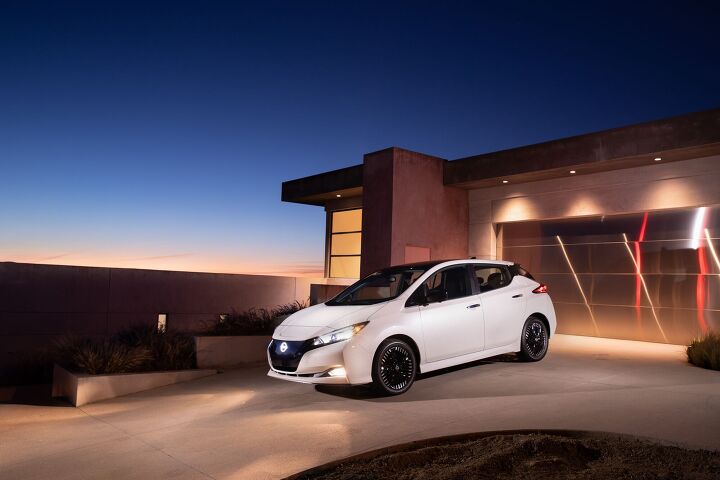
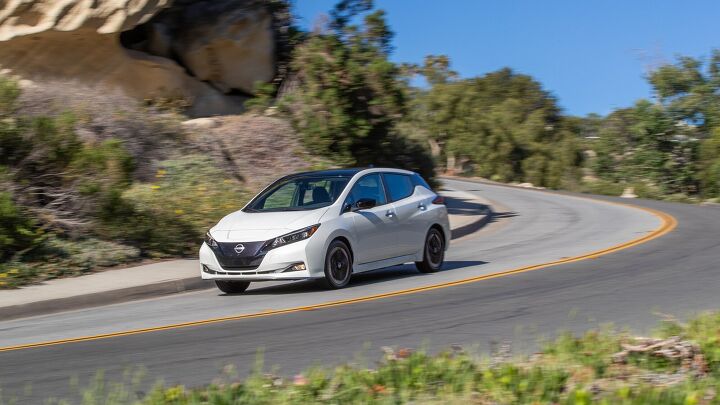
![Nissan Leaf Rumored for Discontinuation [UPDATED]](https://cdn-fastly.thetruthaboutcars.com/media/2022/07/19/9148523/nissan-leaf-rumored-for-discontinuation-updated.jpg?size=720x845&nocrop=1)
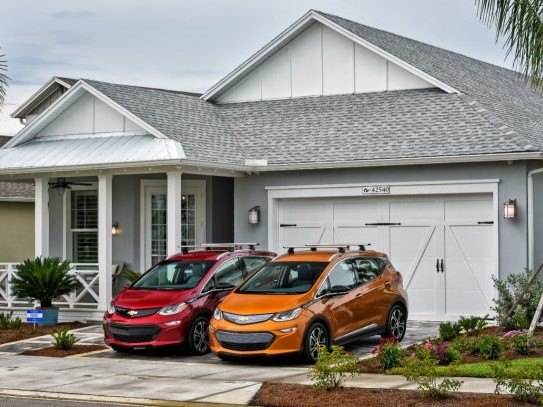
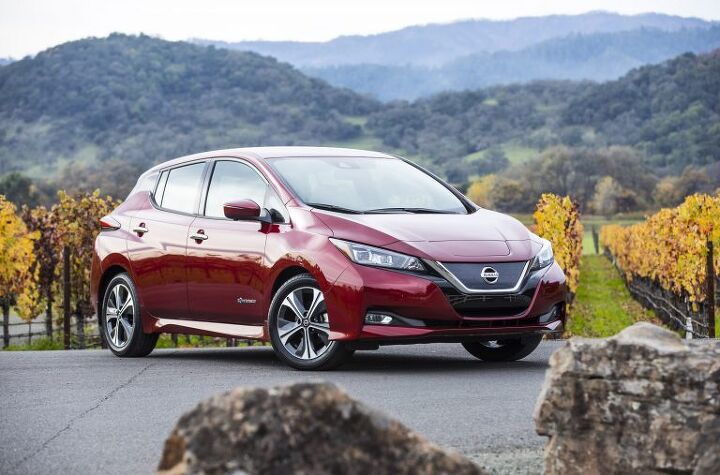

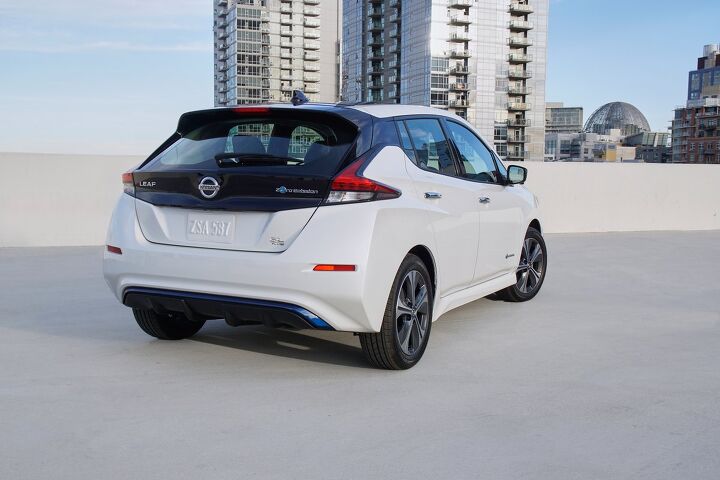



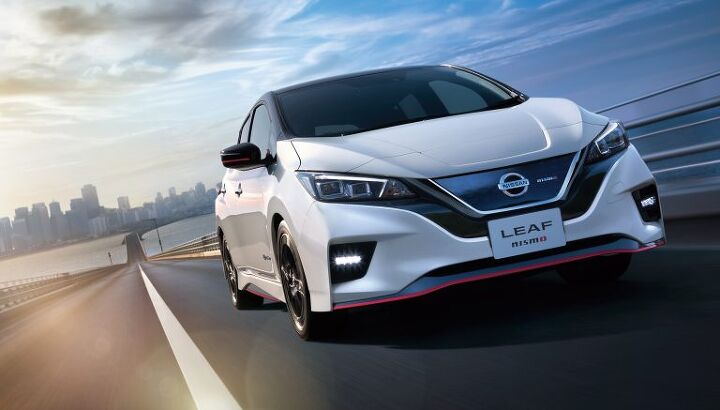


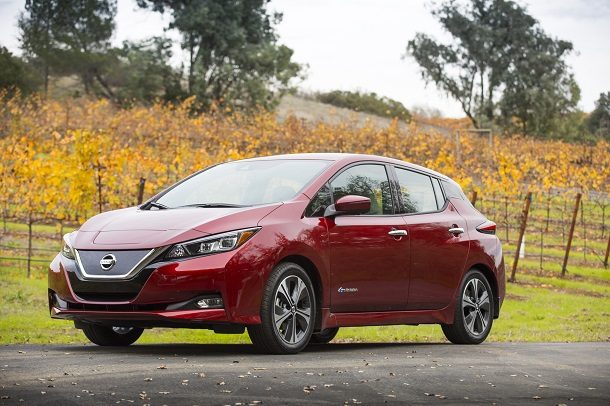












Recent Comments